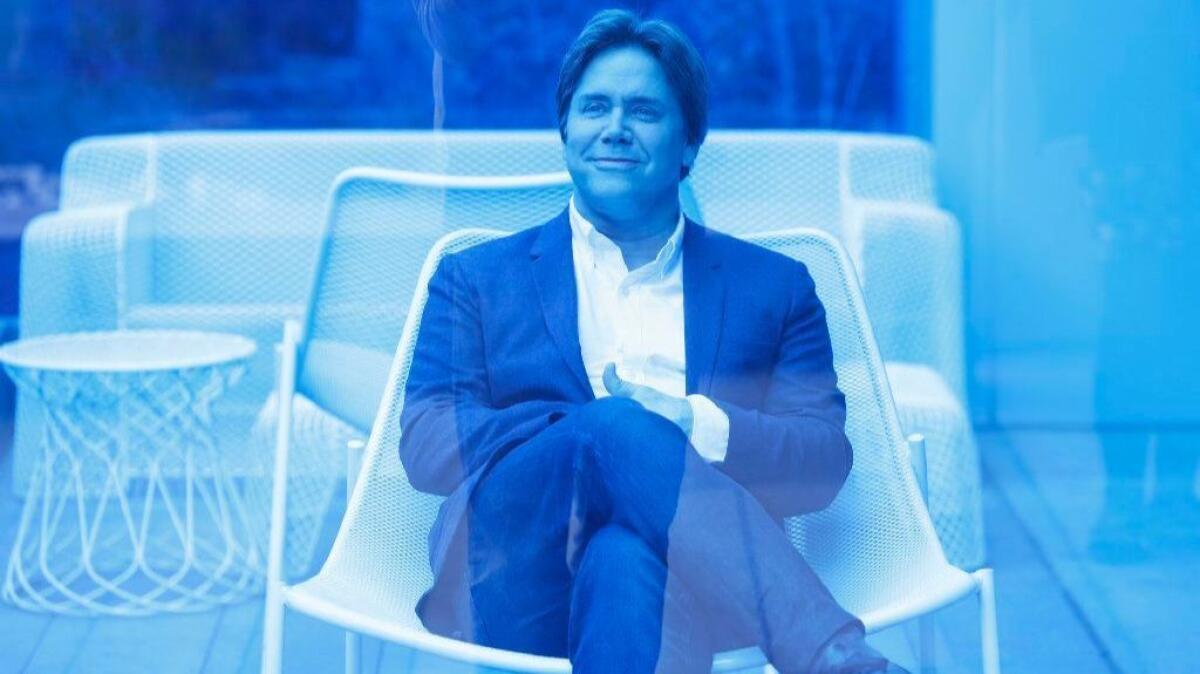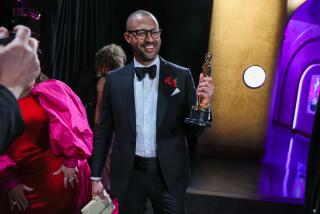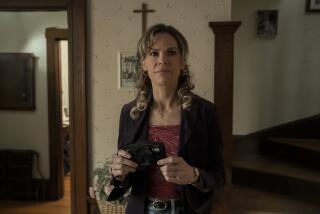‘Perks of Being a Wallflower’ author-director Stephen Chbosky takes on another young adult ‘Wonder’

Stephen Chbosky’s name is already synonymous with young adult literature. But since the publication of his celebrated coming-of-age novel “The Perks of Being a Wallflower” in 1999, Chbosky has earned yet another reason for recognition.
Having written and directed the “Perks” adaptation, as well as adapting “Rent” and this year’s live action mega-hit “Beauty and the Beast,” he’s seemingly mastered the task of interpreting material conceived for younger audiences without alienating older moviegoers.
“I want to make everyone who sees it have the potential to love it the way I love it,” he said.
His latest foray into that territory is the family drama “Wonder,” which he co-wrote and directed. Lionsgate releases the film nationwide on Friday, with an eye toward drawing audiences of all ages over the Thanksgiving holiday.
“Wonder,” based on the book of the same name by R.J. Palacio, follows August “Auggie” Pullman, a young boy born with a facial deformity played by “Room” star Jacob Tremblay. After homeschooling him for a number of years, his parents, played by Julia Roberts and Owen Wilson, enroll him in school, where he must cope with being physically different than his peers. The film also stars Izabela Vidovic, Mandy Patinkin and “Hamilton” Tony winner Daveed Diggs.
In terms of the books that I know and am so completely confident will be taught in schools 75 years from now, ‘Wonder’ is on that list.
— Stephen Chbosky
When Chbosky was 12, he wanted to be two things, a baseball player and a writer. Fast forward a decade or so and after deciding he was probably too short for Plan A, he graduated from USC’s screenwriting program and soon after wrote, directed and starred in his first film, “The Four Corners of Nowhere.”
Though the movie did get accepted into Sundance, Chbosky wasn’t fortunate enough to get a big deal from the festival, and “financial ruin” commenced. But all hope was not lost: He landed an agent, who got him a job as a screenwriter.
Eventually, he revisited a script he’d began writing in college.
“I wrote 70 pages just to get to ‘I guess that’s one of the perks of being a wallflower,’” he said. Chbosky mulled on that line for a number of years before completing the novel, which would go on to become a New York Times bestseller.
“After a bad breakup and a worse rebound, on a Saturday morning, heartbreak fueled the art,” he said.
At the time, he “certainly hoped to” direct the film adaption one day — the book even has specific images in it “planting seeds” for the big screen. MTV wanted to launch a TV show based on the book and Fox wanted to buy the movie rights with Chbosky writing the screenplay, but he said, “a little voice told me to hold off, get more experience and learn how to do this.
“And I did.”
That puts Chbosky in rare company, which includes Ethan Hawke and Stephen King, of authors who’ve also written the screenplays and directed the film adaptations of their work.
Such particular experience reassured Palacio when Chbosky signed on to revamp Steve Conrad and Jack Thorne’s original “Wonder” script, not only as a fan of “Perks” but also as a fellow author.
“When he and I sat down for our first dinner meeting, I realized we had the same vision for the movie,” she said. “He knew ‘Wonder’ so well and was so reverential and complimentary of it. He wanted to keep the themes of the book intact, and that’s what appealed to me, his love for the written work.”
At the core of the novel is an anti-bullying message and hope for people to be kind to one another despite their differences. Chobsky wanted to ensure that that sentiment translated into both the film and the production.
“This material and being around these kids made all of us be better people and better artists,” said Chbosky, noting that he instituted a particular rule while filming. “I said that I would make it through without once yelling or raising my voice. If we were going to make a movie about kindness, we would be kind.”
The theme of kindness also made its way into the picture’s marketing, with the social media hashtag #ChooseKind used for promotion.
Chbosky’s admiration for the book is so intense that he cites it as one of three “immortal classics in American literature for this age group.” The other two are “To Kill a Mockingbird” and “The Outsiders.”
“In terms of the books that I know and am so completely confident will be taught in schools 75 years from now, ‘Wonder’ is on that list,” he said.
This sentiment informed his adaptation, and because he’s a genuine fan, he knew what the book’s devoted community of readers would want to see in the film.
“If you do an adaptation and you read the book, try to write the adaption from what you remember of the book,” he said of his rule about doing adaptations. “What you remember is the core story.”
But writing “Wonder” was a little “complicated,” he admits.
“Because ultimately, it had to be simple enough for a child to understand but not so simple that the parents or grandparents would be bored,” he said. “That’s a fine line to walk.”
Roberts, who first read the book a couple years after its 2012 release, believes Chbosky accomplished that very task.
“It is more than one could wish for to have a director also be an accomplished screenplay writer and novelist,” she said. “It was the perfect combination of talents to lead this book so gently to the screen.”
With its sentimental storyline and easy access to its characters’ emotions, some viewers will call “Wonder” a tear-jerker, while others might label it a crowd-pleaser. But driving Chbosky in all that he creates is a goal of providing comfort to people, the same way films such as “Dead Poets Society” and “The Breakfast Club” had an effect on him.
“I want to make a certain group of people’s favorite movies,” he said. “And there’s a difference between best and favorite. Ideally, it’s ‘The Wizard of Oz’ or ‘Godfather’ and it’s both, but if I had to pick, I’d pick a favorite every time.”
Get your life! Follow me on Twitter (@TrevellAnderson) or email me: trevell.anderson@latimes.com.
More to Read
Only good movies
Get the Indie Focus newsletter, Mark Olsen's weekly guide to the world of cinema.
You may occasionally receive promotional content from the Los Angeles Times.







